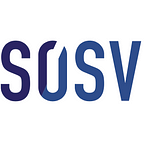Written by Ryan Bethencourt
As we start to look at the emerging trends of 2016 from the vantage of IndieBio, where we see hundreds of biotech project and startup applications, a few key themes seem set to continue from 2015 — even if winter does come to the financial markets (boom-and-bust cycles are a part the biotech industry we know and love).
Scientific consensus is emerging that all mammals, birds and even octopus have conscious awareness (Cambridge Consensus), which has led many to question increasingly the use of animals in our industrial agricultural system. Many of us believe that there’s a better way, without the need to harm animals, to make the foods that most people love — like meat, dairy, and other animal-based products — in the lab. Companies like Gelzen, Memphis Meats, Pembient, New Wave Foods and Muufri area already making these products with plants, yeast and microbes.
One of the big surprises of 2015 was Google’s attempt to buy Impossible Foods, the engineered plant-based burger company, for $200m, but their offer was turned down. This made it clear: the future of food and the application of biology as a technology, is now hot!
A new genetic engineering technique, CRISPR, has captured the imagination of the globe, not just science nerds, for the ability to genetically reprogram any cell relatively precisely (dramatically improving on the relatively inaccurate editing mechanisms of previous gene therapies). It is a new biological process discovered at UC Berkeley and MIT which has broad reaching implications for almost all of the biotech industry.
While 2015 was the year of CRISPR, 2016 will be the year that the world realizes that CRISPR is a class of molecules. Expect more and different types of CRISPR-like technology.
At the end of 2015, we heard of the dramatic results of a small child who’d failed all treatments for her treatment-resistant leukemia being cured in a clinical trial by T-Cells that were reprogrammed to hunt and kill her cancer cells. The therapy worked, and she now appears to be cancer-free. 2015 was the year the world saw the power of being able to reprogram our immune cells, true molecular machines — and 2016 will be the year we see wide scale applications of these reprogramming technologies by Cellectis and many other biotechnology companies to treat cancers, infectious diseases, and perhaps other applications that are still just a glimmer in scientists’ minds!
Originally published at sosv.com on January 11, 2016.
